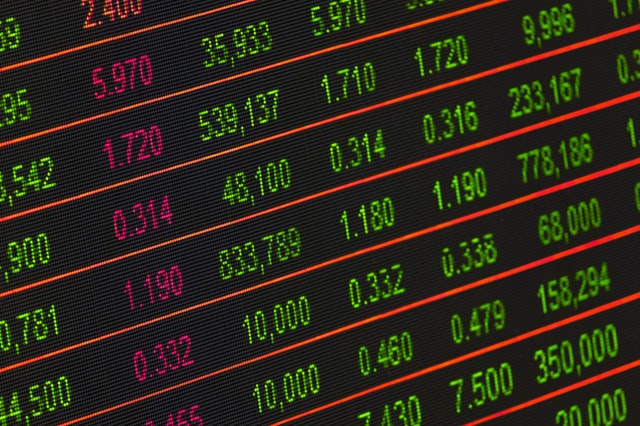How to Choose a Trustworthy Forex Broker: 9 Factors to Consider
Before venturing into the foreign exchange market, you need to open a trading account with a currency trading broker, commonly known as a Forex broker.
Through a Forex broker platform, you can access the live Forex market. From there you can control and manage your trades. However, with the recent surge in the number of retail Forex brokers, it is important to choose a trustworthy broker who best fits your trading needs.
A trustworthy Forex broker makes it easy for traders to make profits and succeed. Here are 9 critical factors every trader should consider when choosing a Forex broker.
RELATED ARTICLE: HOW TO TELL WHEN YOU’RE READY TO BECOME A FULL-TIME FOREX TRADER
1. Does the Broker Meet Regulatory Standards?
Proper regulation gives investors assurance that a Forex broker maintains fair trading practices. A well regulated broker will be sure to keep funds secure. What’s more, such a broker will have adequate capital. This assures that the broker will be able to trade in all events, including losses. So verify that your broker meets all regulatory standards before depositing your money with them. You can check whether a broker meets regulatory standards by looking at your regional Forex trading regulator’s website.
2. Will Your Information Be Secure?
Setting up a trading account with a Forex broker means you are going to share a lot of confidential data, both personal and financial. Typically, any broker will require copies of your identity card, utility bill, passport, bank account information and also your credit card details. Brokers with poor internet security measures put your personal and financial data at risk of being stolen or compromised by attackers. This can lead to identity theft. A trustworthy broker will employ a reputable and reliable internet security firm to serve them.
3. What Are the Broker’s Trade Execution Practices?
Trade execution is one of the most important factors to consider. That’s because you’ll want to have your trades executed in a timely fashion and at the best rates. A broker’s business model can greatly affect the rate at which traders make money. Such factors as a broker’s ask/bid spreads or the timing of when clients exit or enter a trade can make an enormous difference. Additionally, a trustworthy broker will ensure their platform has features to protect traders against excessive losses as well as negative balances.
4. Look into Spreads, Commissions and Transaction Fees
Trading costs have a significant effect on the net profit a trader makes. Although most people do not like expensive brokers, many of the brokers who charge higher fees also offer a higher level of client service. This can include market analysis, research, training materials and better trading tools. When choosing a broker, consider the spreads they offer, the commissions they charge, and any miscellaneous fees. Worth noting is that some brokers will charge fees for deposits, withdrawals, credit card transfers, and inactivity, while others will not.
5. Compare Trading Platforms
Every trader loves an online trading platform that is user-friendly and intuitive. Most traders also look for a platform that has rich, powerful features that meet their trading needs. A trading platform might be web-based or mobile-based. Or it could be a MetaTrader. In any case, check the trading tools and services available to ensure a high level of performance. Additionally, look for Forex brokers who offer demo accounts. With a demo account you can perfect your trading strategies before investing in a real account.
6. Does the Broker’s Trading Style Suit Your Needs?
Most Forex traders settle on a particular trading style which they consider their best fit. These styles can vary in terms of time frame and account management. While some traders prefer scalping, others like automated trading. Still others are self-directed discretionary traders. A trader should, therefore, consider the trading options that are available before choosing a broker. Additionally, a trustworthy broker will offer social trading, where Forex traders can share their knowledge.
7. What Are Your Account Options?
When setting up a trading account, you will come to realize that Forex brokers differ greatly. For example, they will vary in the amount of the minimum deposit they require. They will also offer different trading terms and other account features. Most brokers bury this information within their terms of service. When they do, unwary traders can easily overlook these options. Some of the things to consider include minimum deposits, base currencies, account types, leverage, and payment options.
8. Expect a High Level of Customer Service
Great customer service is important, especially to novice traders. A broker who has a helpful support staff makes it easy for traders during the account-opening process, as well as throughout the entire account management process. When choosing a Forex broker, ensure their support team is responsive and replies to messages in a timely fashion.
9. What Trading Tools and Educational Materials Does the Broker Offer?
Both new and experienced traders should choose brokers who provide training materials such as e-books, articles, videos, webinars, seminars, and e-courses free of charge. These resources help traders learn the basic concepts of the Forex market. Such tools as these will help you to gain insights that will help you to craft effective trading strategies.
Conclusion
Conduct thorough research before making a decision about which Forex broker you will deposit your money with. Choose a broker you can trust so that you can have the best possible trading experience.

